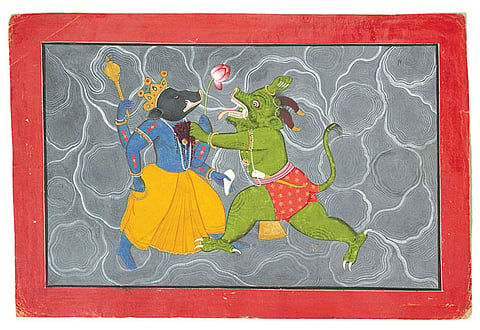(This is an essay from our April 2013 print quarterly 'Farms, Feasts, Famines'. See more from the issue here.)
For an animal that is so harmless, useful and downright endearing, the pig has aroused surprising levels of animosity, labouring under a burden of humiliation, denigration, slander, abuse and – to crown it all – strict religious taboos in some traditions. Yet the pig has not been rendered extinct with the hatred that it appears to have evoked in the hearts of humankind, and has even come through it all with a smile and a few good-natured grunts, though perhaps not smelling of roses.
Because a pig has many virtues. First, it has a huge evolutionary advantage: a well-cooked pig tastes divine (and I use this hyperbole with complete sincerity and in good faith). Michael Pollan, in his The Botany of Desire (2001), talks about how plants like the potato, the apple and, of course, that indispensable wonder-plant marijuana, have developed an adaptive evolutionary strategy of making themselves irresistible to humans. Seduce homo sapiens into developing a taste for your species, and they will become willing slaves to ensure your wellbeing. Pigs have clearly figured this out – for proof, think pork ribs, pork roast; Goan vindaloo and sorpotel; Naga pork and akhuni curry or pork with bamboo shoots; and Mizo smoked pork, just to pick the first few of an endless roster that comes to mind and sets the saliva flowing. As long as the pig tastes the way it does, it is guaranteed that humans, abuse it as they might, will do all they can to preserve and propagate the species.

